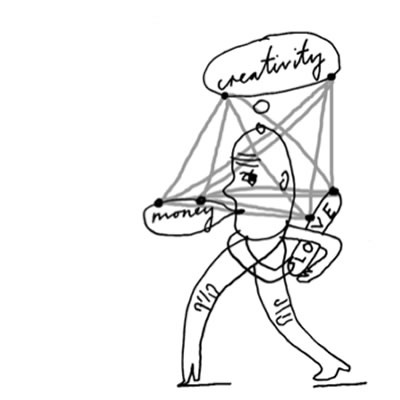First published on November 2011.
Excellence and enjoyment, skills based curricular, knowledge based curricular, enquiry based learning ...everyone has their opinion as to what we should be teaching today's children. But many forget that today's children will not be adults in today's world, they will be adults in 'tomorrow's world', a different place, with a different set of rules, different boundaries, and different opportunities.
We need to educate today's children for a world that doesn't exist, a world that we can try to imagine, but one that is unpredictable and unknown.
Knowledge is now available at the touch of a button, anywhere. A quick internet search and we can find out even the most obscure facts. Even the skills to find the knowledge seem to come naturally to most children – I’ve seen 5-year olds (including my own son) navigate the internet with ease.
So what do we need to equip today's children with, not only for the creative and cultural industries to thrive, but for all industries to develop and to succeed?
We need to embed a lifelong love of learning. To turn children on, to excite, to empower, to engage.
Our schools need to be vibrant, inspiring places. Our teachers need to be just as vibrant and inspiring and the opportunities that we offer our children need to give a rich, varied range of experiences that are far-reaching and beyond what the child has already experienced.
We need to opens minds, to offer opportunities that enable free thinking, we need to encourage questions, encourage children to make mistakes, to take risks.
We use the phrase ‘to think outside the box’, but in a recent ‘out of the box’ experience, some children taught me that we need to stop using this phrase. They told me that when real learning takes place, we need not to think outside the box; when they learn most effectively there truly is no box.
This is what makes the very best schools, the schools where the sky is the limit, where there is no box.
Our education system needs to be joined up, truly collaborative. With schools at the very centre of communities, becoming hubs of learning with cradle to grave offers.
We need to grow confident, respectful, resilient, inquisitive individuals with the skills to adapt to the changing world they live in.
On a very simple level, we need to expose children to as many artists and creative practitioners as possible. So they do not see artists as people who paint very expensive paintings, but as real people, people who they can become, not just dream about becoming. Every child should get to work with artists, dancers, actors, musicians, authors, illustrators not once in their lives, but regularly. But equally, they should be given the opportunity to work with solicitors, accountants, painters, gardeners; for them to see that successful futures are achievable, not distant dreams.
There of course needs to be a form of assessment, to know that children are making good progress, but what we assess needs to be broader than the 3 ‘R’s. We need to find effective ways of assessing children’s creative skills and their attitudes to learning and to life and indeed their well-being.
We also need to recognise that with the invention of new technologies that the world is a much smaller place than it was a decade ago and in ten years time, it will be a smaller place still. We need to use these technologies to expose children to the wider world, to learn from the very best; to apply and improve on what others have learnt to impact on their own lives.
Our education system needs to become a different place; a place that values more than SATs results; a place that values everything about children and young people; a place that understands that while it is important that children have good basic skills in English and Maths, the successful child has so much more than this and we need to work with the wider world to understand exactly what this is. Our education system needs to be truly outstanding and to do this, our schools need to stand out.
'It’s not that I feel that school is a good idea gone wrong, but a wrong idea from the word go. It's a nutty notion that we can have a place where nothing but learning happens, cut off from the rest of life.'– John Holt
Our challenge is to turn schools into places where more than learning happens; where children live to learn, not learn to live.
 Creativity Money Love: Learning for the 21st Century by Creative & Cultural Skills is licensed under a Creative Commons Attribution-NonCommercial-NoDerivs 3.0 Unported License.
Creativity Money Love: Learning for the 21st Century by Creative & Cultural Skills is licensed under a Creative Commons Attribution-NonCommercial-NoDerivs 3.0 Unported License.
Illustrations by Paul Davis - http://copyrightdavis.blogspot.com/


